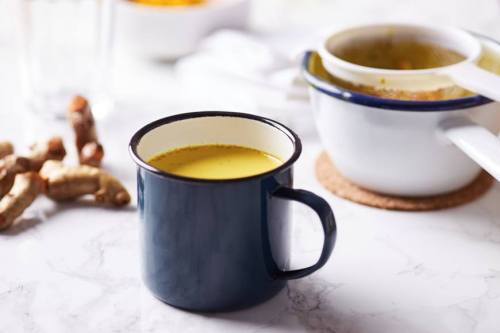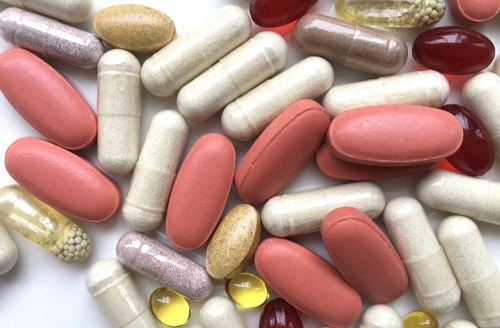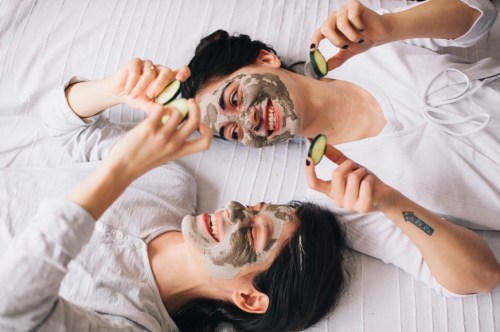Working as I do for a wellness publication while living in health-centric Los Angeles, I sometimes find myself overwhelmed by all the things I *should* be doing to optimize my wellbeing. In some cases, this leads to doing—gulp—none of them. (While investigating my many imagined “symptoms” on Google instead, because of course).
This is silly, as there are many quick-and-easy ways to improve health daily without putting much thought into it at all. Take chronic inflammation, for example—one of those scary wellness buzzwords that we pretty much all experience to some degree, whether we realize it or not. According to Elizabeth Boham, MD, it’s a super-common condition that happens “when the body comes into contact with something it perceives as foreign or dangerous and produces substances to attack it.”
And while there’s no magic pill to make us immune to inflammation, there are plenty of (mostly) minor behavioral tweaks that can help reduce your risk for inflammation-related issues—leaky gut, autoimmune disorders, painful periods, cardiovascular disease, and even some forms of cancer, all while improving the appearance of your skin.
Below, find eight tips culled from the Well+Good archives, all of which can transform your life into an inflammation-free (or at least, reduced) zone. And no, you don’t need to do a month-long detox in India or eliminate multiple food groups to get there.
Scroll down to find your cheat sheet for reducing your inflammation risk.

Add anti-inflammatory foods to your grocery cart
I promise you that your anti-inflammatory diet can still be pleasurable—even though you’ll need to skip or reduce your intake of sugar, dairy, and other potentially triggering foods. (Sorry!) In their place, add in plenty of fruits and vegetables, especially pomegranates, red grapes, pears, mushrooms, lentils, soybeans, and green peas. These all contain natural compounds that activate something called autophagy which, long story short, reduces inflammation.
You’ll also want to load up on fiber and healthy fats (like oils spiked with turmeric). When it comes to condiments and other add-ons, I suggest trying this Candice Kumai-approved salad dressing to supercharge your raw greens and putting rosemary on everything for extra anti-inflammatory benefits. Want to add some more exotic options to your pantry? Stock up on Job’s tears—a plump, chewy, gluten-free ancient grain—and the buzziest superfood of 2018: moringa.
Remember, too, that it’s not so much about becoming obsessively restricted in your diet as it is about adding in as many of these inflammation-fighting foods as possible each day. Ideally, they’ll start to crowd out the other, not-so-good-for you options. But, for now, feel free to view them simply as supplementary so as not to become overwhelmed. (This guide to the ultimate anti-inflammatory meal will help you put it all together.)

Rethink your beverage routine
According to a recent conversation I had with mind-body medicine pioneer Deepak Chopra, one glass of wine could have anti-inflammatory benefits while more than one will have the opposite effect. So minimizing your alcohol consumption will help to reduce inflammation right off the bat.
From there, you can start to sip green tea or matcha—another favorite of Candice Kumai’s—more often. Actress Catherine Zeta Jones, meanwhile, relies on kombucha to reduce the inflammation related to her chronic illness and you can, too. (Illness or not). Or try this ACV-turmeric drink, one of these powerhouse tonics, an anti-inflammatory smoothie, or even a moringa tea to boost your body’s inflammation-reducing response.

Take a supplement that reduces inflammation
With the wellness world’s increasing preoccupation with the gut as the root of all health issues, it should come as no surprise that a daily dose of probiotics is recommended to reduce inflammation. Experts believe that omega-3s, collagen, and stress-reducing adaptogens will help, too. The best part? This is likely the easiest hack of all—tossing back your supplements before bed will add all of 10 seconds to your routine.

Sleep more—and better
Here’s a good reason to put a 10pm cap on your Black Mirror binges: Research has found a lack of sleep increases inflammation. Fortunately, there’s no shortage of shut-eye solutions at your disposal. First off, avoid these 5 foods before bed. Then, regulate the temperature of your sleep environment to regulate the quality of your sleep—a process that may include slipping into some sleep-enhancing PJs. Next, feng shui your bedroom for prime sleep-enhancing vibes. And a few hours before you turn out the lights for the night, ditch your devices, run a hot bath, and turn on some Bob Marley. (Hey, it works for Dr. Frank Lipman.)
What if you wake up and can’t fall back asleep? Try these eight insomnia-busting tips and remember—Netflix is a no-go.

Tweak your mindset
During my chat with Chopra, he mentioned that researchers have begun making connections between negative emotions (e.g. anger) and inflammation. On the flip side of this, experiencing a range of 16 positive emotions has been shown to decrease inflammation. These states include enthusiastic, interested, determined, excited, amused, inspired, alert, active, strong, proud, attentive, happy, relaxed, cheerful, at ease, and calm. To jumpstart their cultivation in your life, try picking one as your focus word for two weeks.

Swipe right wisely
Seriously! Breakups cause inflammation, and though they’re sadly not preventable, you can reduce your risk of relationship drama by avoiding bad boys (or girls), watching out for dating profile red flags, and steering clear of potential narcissists. Too late? If you’re currently going through a split, these Netflix picks may help—or you could try these simple heartache-healing tips from Suki Waterhouse and Katy Perry.

Show your skin some love
An anti-inflammatory diet, along with just about everything else on this list, will surely help to soothe inflamed skin. So, too, will this aloe vera face mask, these blue tansy-packed products, turmeric-laced skin care, and adaptogenic beauty loot. Why not make a self-care spa day of it?

Just breathe
Just 20 minutes of this Ayurvedic breathing technique can lower stress-related inflammation. Regular meditation, meanwhile, has been proven to reduce inflammatory responses in the body, too. What could be simpler than that?
Want to enjoy a total inflammation detox? Try a vegan silent retreat. And while we’re on the subject, did you know Well+Good is hosting its first restorative escape right now?
Sign Up for Our Daily Newsletter
Get all the latest in wellness, trends, food, fitness, beauty, and more delivered right to your inbox.
Got it, you've been added to our email list.











